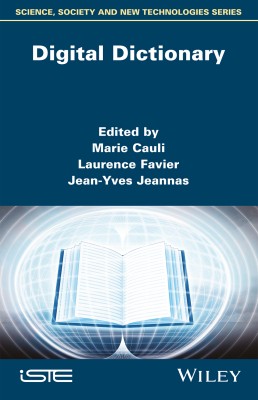
“Digital age”, “digital society”, “digital civilization”: many expressions are used to describe the major cultural transformation of our contemporary societies.
The Digital Dictionary presents the multiple facets of this phenomenon, which was born of computers and continues to permeate all human activity as it progresses at a rapid pace. In this multidisciplinary work, experts, academics and practitioners invite us to discover the digital world from various technological and societal perspectives.
In this book, citizens, trainers, political leaders or association members, students and users will find a base of knowledge that will allow them to update their understanding and become stakeholders in current societal changes.
A
Accessibility
Anthropology
Art and robotics
Artificial Intelligence
...
B
Blockchain
Brain-Computer Interfaces
...
C
Coding
Communication
Computer Security
Crowdsourcing
...
D
Data, information, knowledge
Digital Inclusion
Digital Sovereignty
...
E
Eco-digital Responsability
Electronic Voting
Ethics
...
F
File formats
Formal Language
Free and Open Source software
...
H
Habitele
Hacking
Health Data
...
(...)
Marie Cauli is an anthropologist and professor emeritus at the University of Artois in Arras, France. Her current work explores health, development, training and digital issues.
Laurence Favier is a professor of information and communication sciences at the University of Lille, France. Her current work focuses on the organization of knowledge, archives in the digital age and the digital transformation of the state.
Jean-Yves Jeannas works at the University of Lille, France. He is an expert in the European working group DigComp, vice-president of the AFUL and a member of the CNIL’s national “Digital Education” group.